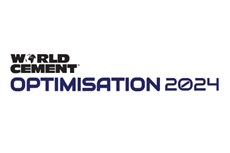The Port of Rotterdam aims for CO2 neutral economy
Published by Rebecca Bowden,
Assistant Editor
World Cement,
The Port of Rotterdam Authority is aiming to take the lead in energy transition. It is making efforts to develop every possible initiative that could contribute to the transition to a CO2 neutral economy.
“The Netherlands is faced with the challenge of making the economy and society virtually CO2 neutral within 30 years. The sooner we take this on the better. The port area has many companies that use fossil resources to make fuels and countless chemical products. These companies emit a lot of CO2, but also have a lot of knowledge about energy, energy-intensive production processes, and CO2 reduction. This makes the Port of Rotterdam exceptionally well-positioned to be an international leader in the development and large scale application of technologies to reduce industrial CO2 emissions virtually to zero. The Port of Rotterdam Authority intends to play a pioneering role and make the port an inspiring example for the global energy transition,” says Allard Castelein, CEO of the Port of Rotterdam Authority. “The knife cuts both ways: we are fighting climate change while making sure that Rotterdam’s port and industrial complex will continue to be a strong contributor to Dutch prosperity and employment after 2050.”
The Port Authority believes that the Netherlands needs a wide range of different technologies and measures to be CO2 neutral by 2050, and a lot of research and experimentation is still needed.
Allard Castelein: “We will be working all out to find that route. We are confident that the Rotterdam industrial complex has a strong starting position. And we think that forging ad hoc coalitions for concrete projects is the best way to make progress. Businesses will play a leading role, with companies that are already based in the port as well as newcomers. The Port Authority wants to help these companies to implement ways to reduce CO2 and/or introduce new, climate-neutral industry as much as possible. We want maximum sharing of experience because this helps to accelerate the transition. Precisely because there is already so much energy-intensive industry here, this is the most logical place for companies to set up and scale up pilot projects. This will make the port a leader in the transition from fossil fuel based industry to clean fossil, renewable and circular. We can be both a field lab and flagship at once.”
The Port Authority is actively looking for companies that want to set up operations that contribute to CO2 reduction in the port. These could be companies from outside as well as businesses that are already active here, or combinations of these. The largest investments will generally have to be made by the companies themselves, but the Port Authority will offer support with attractive accommodation conditions, connecting infrastructure, support with permit applications and finding financing, etc.
In Rotterdam, a lot of work on projects that lead to CO2 reduction is already underway. Examples include using residual heat from the port for district heating, a pilot project for carbon capture and storage, production of biofuels and bioplastics, the use of LNG as ship fuel, a substation for electricity that is generated at sea, and the initiative for a Waste-2-Chemicals plant. By ensuring that the Port of Rotterdam is and stays a leader in the energy transition in the coming decades, the Port will remain an attractive place for investment in modern, low CO2 technologies.
Read the article online at: https://www.worldcement.com/europe-cis/07122016/the-port-of-rotterdam-aims-for-co2-neutral-economy/
You might also like
Rohrdorfer starts ethylene production from carbon dioxide
Following a test phase, production is to be scaled up to an industrial scale, thereby establishing a seamless CO2 circular economy.


